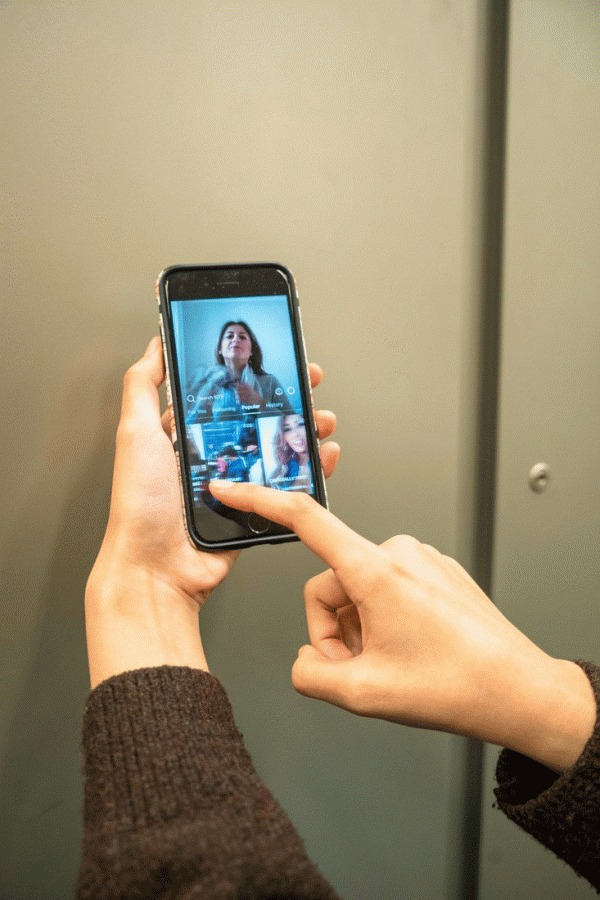A course called Instagram Real World might be one of the most NYU things ever written into the course guide. But there may be more than meets the eye about the class that uses the app as a teaching tool.
Last semester, NYU’s School of Professional Studies offered the Instagram Real World course as a new addition to its Real World classes. Through these courses, students get first-hand experiences working with A-list companies and clients to create projects and solve business problems. In class, students come together to create content that lives outside of the traditional classroom setting.
SPS senior Brody Elkins described the course as an immersion into the workforce where students have the opportunity to do meaningful work with top companies, gain important new skills and apply what they have learned to create projects that leave a lasting impact.
“It was clear to me that this is the type of experience I want to have in the classroom,” Elkins said. “Total immersion. No power points. No memorization. No shallow work. We’re given a challenge and told to run with it.”
The Instagram course was brought together by the Assistant Dean of SPS David Hollander, giving students the opportunity to interact with company executives and determine how to improve IGTV, a new vertical video platform that was introduced by the social media platform in June.
According to Hollander, this class is ideal for students who may not thrive in typical educational settings. Like the other Real World courses, the Instagram class seeks to help students develop skills that are not only personal but practical for the future.
“It’s no longer the professor in front of the class lecturing and students asking questions taking notes,” Hollander said. “It’s the opposite. The professor meets with [each group of students] individually and they run the class. They drive the discovery process, and the professor is just there as a guide to give feedback.”
Elkins agrees that the class is much more focused on learning by doing, giving students greater responsibilities than they are used to.
“There’s no textbook to hold your hand as you stumble through the semester,” Elkins said. “We have to think. We have to fail. Then we have to fail better. It is actual, meaningful work.”
Professor Jonathan Yi, the Tisch School of the Arts professor who was brought on to conduct this class, described the course as creative problem solving, in which students learned how to collectively find solutions. Yi guided students with their projects and gave them insight into the production side of digital content creation, storyboarding and pitching ideas to company executives. Last semester, the students completed projects on Philadelphia Union — the winning video — as well as ones on an Olympic hopeful, an athlete who doubles as a gamer and the life of a graphic designer after college. These students got to reach out to the subjects of their videos, interview them and organize shoots throughout the semester.
In groups of four, the students competed to create a project that would be evaluated by Instagram and Facebook executives, with the winning video showcased in Facebook’s New York City office.
Many of the students said that the class was an opportunity for personal growth. SPS senior Andrew Mayz mentioned how the course influenced him to venture further into the production side of film, despite having little interest in the topic beforehand, and it even helped him land something to jumpstart his new passion.
“The Instagram Real World course was really my first opportunity to develop a project from start to finish through the medium of film or video,” Mayz said. “The course helped me realize how much I enjoyed the storytelling aspect of film. After the course, I accepted a position working on a documentary for a production company.”
This direct connection to organizations and companies makes the Instagram Real World course and similar classes appealing to many students. There are nearly a dozen Real World classes offered each semester and they are open to both graduate and undergraduate students.
“I am a strong proponent of this type of experiential education because it puts students in an environment where they can fail safely and then learn from it, and not by looking up a theory in a textbook, but by thinking their way through adversity,” Elkins said. “That is real education because that is real life.”
A version of this article appears in the Monday, Feb. 25, 2019, print edition. Email Marie-Louise Onga Nana at [email protected].


























































































































































